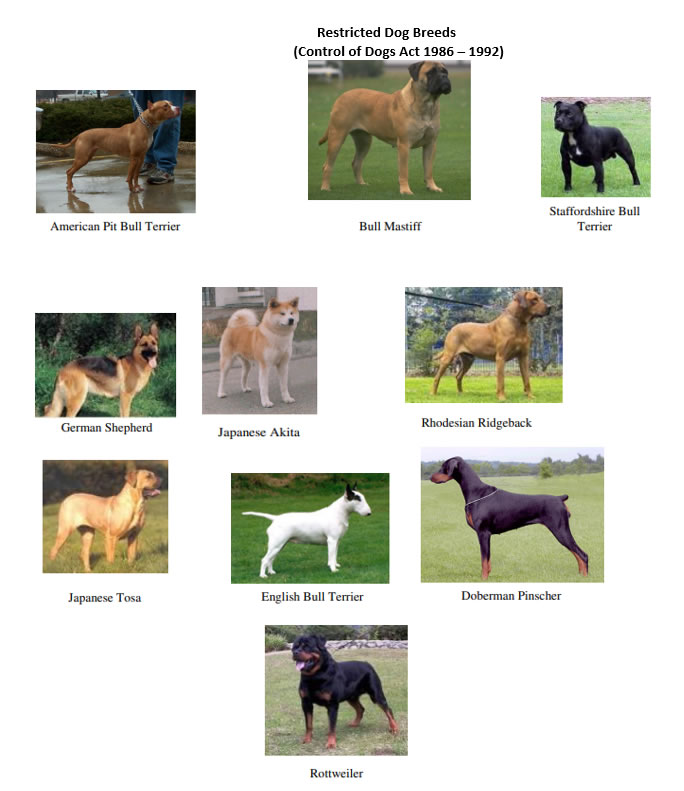Control of Dogs Kilkenny
Kilkenny County Council is responsible for the Control of Dogs Act 1986, as amended and regulations made thereunder for Kilkenny County Council. We share a dog shelter with Carlow County Council which is located at Garryduff, Paulstown, Co. Kilkenny.
Dog Warden Service
The Dog Warden Service is involved in the enforcement of the Control of Dogs legislation including dealing with unwanted, stray and surrendered dogs. The service is also involved in rehoming dogs, investigation of sheep kills, assisting Gardai where necessary, dealing with dogs not under effective control, including restricted breeds, checking of dog licences, witnesses in Court proceedings where necessary.
If you need to talk to the dog warden about public safety, livestock worrying or a stray dog is at risk of causing a road traffic accident please contact the dog shelter on 059 972 6785 or the Environment Office, Kilkenny County Council 056 779 4470 (Monday to Friday 9.00am-5.00pm). Outside of these hours, please contact the emergency number 087 3928488 or your local Garda station who will liaise with our dog warden service. The emergency number can be used for reporting livestock worrying, stray dogs, public safety etc. and is not to be used for reporting dogs barking during the night.
Responsible Dog Ownership
Having a dog as a pet brings many benefits to the owner - companionship, exercise, protection. You should consider the dog needs as well, however, if considering getting a dog. The dog should suit your family circumstances - Do you have a large garden? Will you have time to walk the dog? Can you afford to feed and care for it? Do you have young children?
Barking dogs - Noise Pollution
Persistent dog barking that causes a nuisance to others is a legal offence. This is a civil matter and cannot be dealt with by the Dog Warden or your Local Authority. If you are affected by a neighbour's dog barking, firstly you need to talk to your owner of the dog and let them know that this noise is disturbing you. The owner of the dog may not realise their dog's behaviour is causing a disturbance to other residents. If you don't get a satisfactory response from the dog owner, you must make a complaint to the District Court. For further information, please contact the District court service on 056 7721019 or visit the courts.ie website.
Dog fouling
Dog fouling is a problem especially in our urban areas. Under the Litter Pollution Act 1997, dog owners or persons in charge of a dog/dogs are legally obliged to clean up after their dog if it fouls in a public place. Not only is it an unsightly, foul smelling mess, it can contain parasites, such as worms and pathogens, e.g. salmonella, which contaminate the environment and can cause disease in humans, especially children called toxocariasis. If you want to do your part in preventing your children or your neighbour's contracting these diseases you should ensure that you clean up after your dog in public. Always bring a Scoop the Poop or other means of cleaning up, when bringing your dog for a walk. Failure to clean up your dog's waste can lead to a €150 on-the-spot fine or
The following information may prove useful:
Common Diseases passed from Dogs to Humans (including Children)
Micro-chipping your dog/Identification of dogs.
With effect from 31st March 2016, all dogs must be micro-chipped by a registered veterinary practice and the name, address and contact details of the dog owner must be registered. This also applies to all pups over 12 weeks old. Micro-chipping your dog make re-uniting lost or stray dogs with their owners much easier. All dogs must be identifiable by a badge or tag attached to their collar with the name and contact details of the owner. If you do not have identification on your dog, you are liable to receive an on-the-spot fine of €100. Failure to pay this fine can result in prosecution with a maximum fine of €2,500 and/or up to 3 months imprisonment if convicted.
Restricted breeds
Restricted breeds - All dogs must be kept under effectual control. In addition, the Control of Dogs Regulations 1998 places additional controls on the following specific breeds of dogs:-
- American Pit Bull Terrier
- English Bull Terrier
- Staffordshire Bull Terrier
- Bull Mastiff
- Doberman Pinscher
- German Shepherd (Alsatian)
- Rhodesian Ridgeback
- Rottweiler
- Japanese Akita
- Japanese Tosa
The above breeds and crosses thereof in public must be:-
- Securely muzzled
- Lead by a strong chain or leash
- In the charge of a person >16 years old
- Wearing a collar with the owner's name and address
Spaying and Neutering
All pet owners are strongly advised to have their dog neutered if they don't intend to breed from them in a responsible and caring way. This will reduce the number of unwanted puppies. Neutered male dogs are less likely to wander or display aggression. These procedures also reduce the risk of your pet contracting life threatening diseases.

 Kilkenny County Council
Kilkenny County Council

